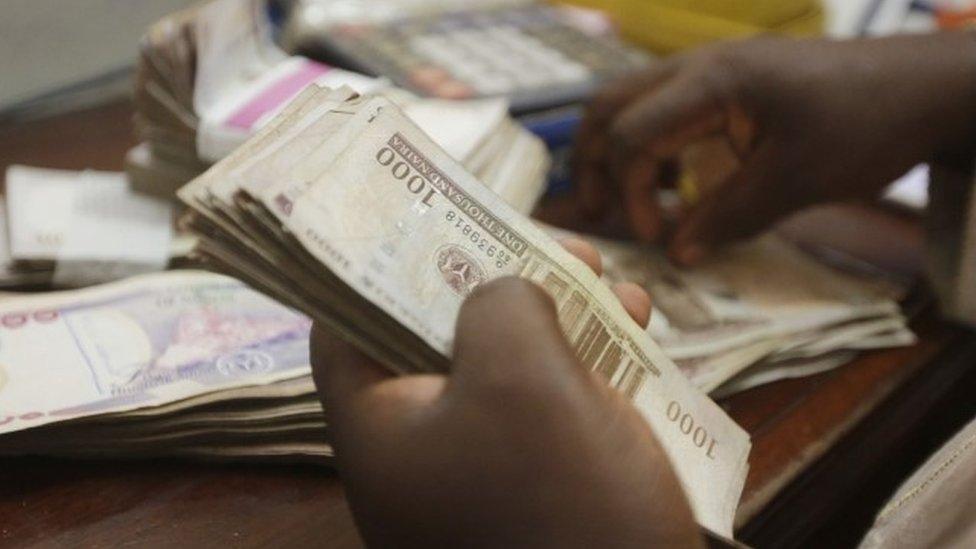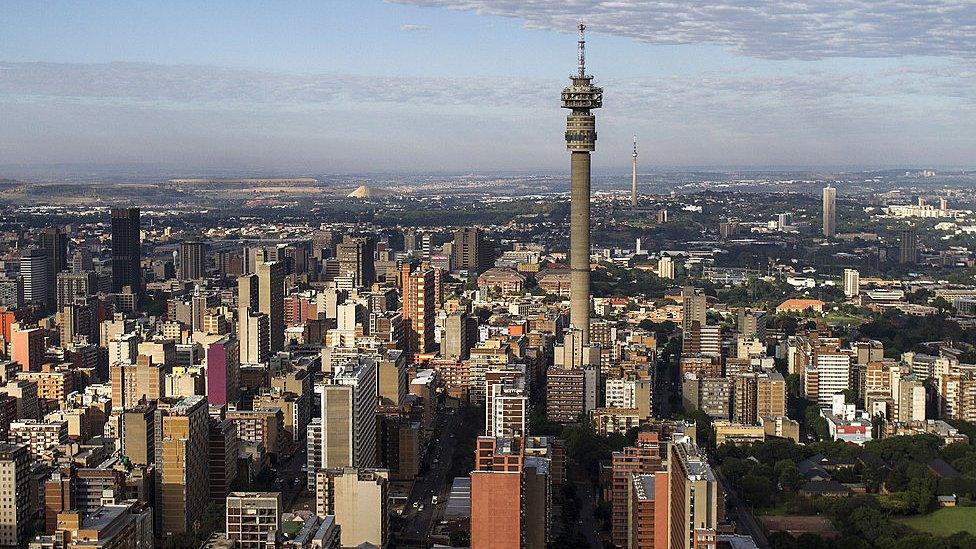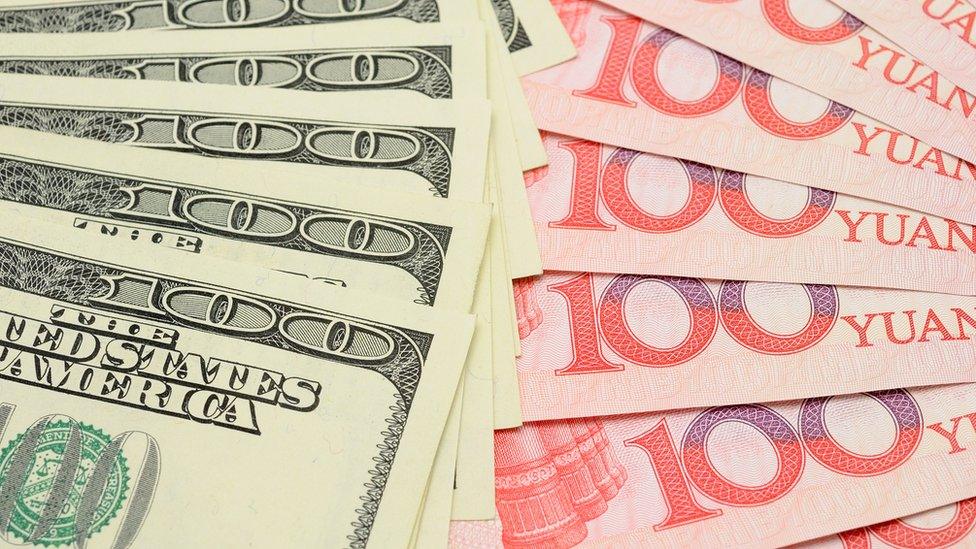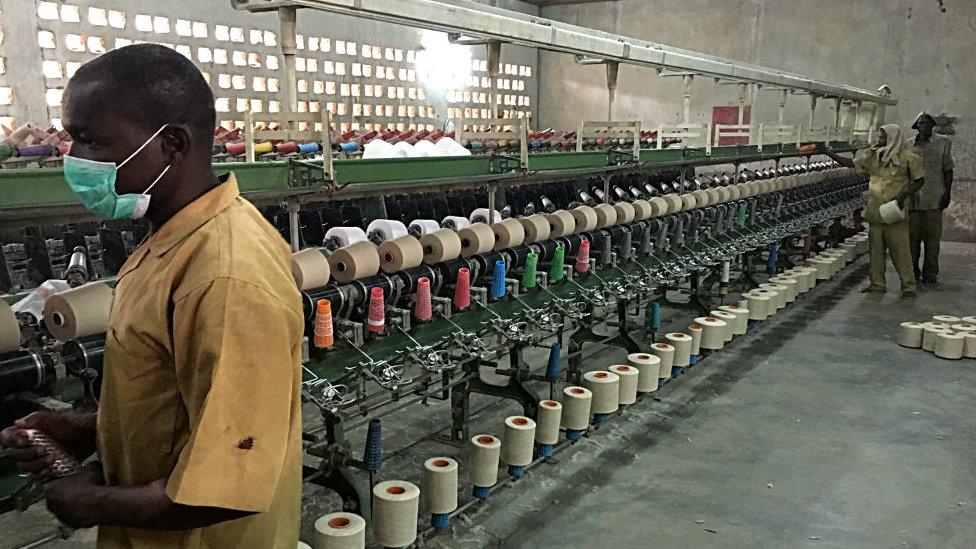Nigerian economy slips into recession
- Published
Nigeria in recession: How the country got here
Nigeria has slipped into recession, with the latest growth figures showing the economy contracted 2.06% between April and June.
The country has now seen two consecutive quarters of declining growth, the usual definition of recession.
Its vital oil industry has been hit by weaker global prices, according to the Nigerian Bureau of Statistics (NBS)., external
But the government says there has been strong growth in other sectors.
Crude oil sales account for 70% of government income.
The price of oil has fallen from highs of about $112 a barrel in 2014 to below $50 at the moment.
Outside the oil industry, the figures show the fall in the Nigerian currency, the naira, has hurt the economy. It was allowed to float freely in June to help kick-start the economy, but critics argued it should have been done earlier.

Nigeria is facing high import prices following the devaluation of the currency, the naira
The government, however, has found some positive news in the figures.
"There was growth in the agricultural and solid minerals sectors... the areas in which the federal government has placed particular priority," said presidential economic adviser Adeyemi Dipeolu.
Nigeria, which vies with South Africa for the mantle of Africa's biggest economy, is also battling an inflation rate at an 11-year high of 17.1% in July.
"A lot of Nigeria's current predicament could have been avoided," said Kevin Daly from Aberdeen Asset Management.
"The country is so reliant on oil precisely because its leaders haven't diversified the economy.
"More recently, they have tried, and failed, to prop up the naira, which has had a ruinous effect on the country's foreign exchange reserves and any reputation it might have had of being fiscally responsible."

Analysis: Martin Patience, BBC Nigeria correspondent
This economic recession comes as no surprise to millions of Nigerians. Many say they've never known it so tough.
The slump in global oil prices has hit Nigeria hard. The government depends on oil sales for about 70% of its revenues.
But critics say government policies made a bad situation even worse. The decision to delay devaluing Nigeria's currency meant many businesses struggled to get foreign currency to pay for imports, which had a cooling effect on the entire economy.
Following enormous pressure, the government changed tack this summer, allowing the naira to float.
That's led to a spike in inflation, but the hope is that it will attract foreign investors. The government also says the country needs to import less: it wants to see more products made in Nigeria.

- Published31 August 2016

- Published11 August 2016

- Published24 August 2016

- Published14 March 2016
